Diana Gabaldon talks about Outlander TV series
By Alexandra Heilbron on March 23, 2015 | Leave a Comment
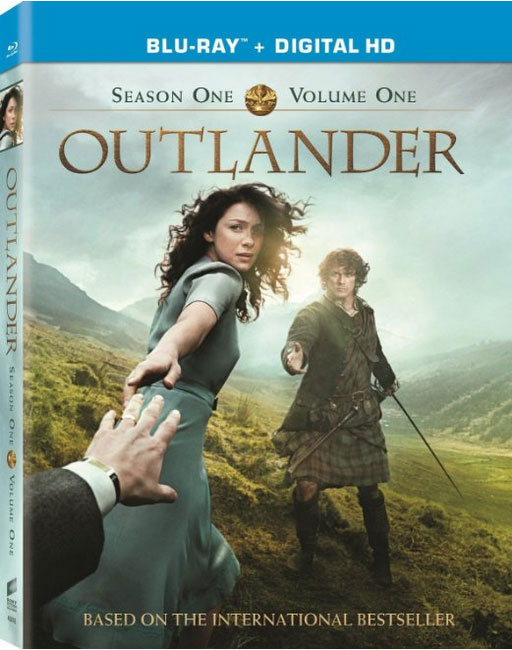 Diana Gabaldon has had enormous success with her New York Times bestselling book series, Outlander, which was recently turned into a television series, currently airing on Showcase.
Diana Gabaldon has had enormous success with her New York Times bestselling book series, Outlander, which was recently turned into a television series, currently airing on Showcase.
The story follows a nurse in 1945 who walks through a series of ancient stones in Scotland and is transported back in time to 1743, where she’s taken in by the MacKenzie clan. Unable to get back to her time, she remains and falls in love with Jamie Fraser, a handsome and charming young Scottish warrior. We spoke to Diana to find out how she came up with the idea and what she thought of the series.
You once wrote Disney comics. How did you get into that as someone with three science degrees?
I think I was about 27 and I picked up the latest Disney comic at a local convenience store, and I thought, “This is pretty bad, I bet I can do better myself.” I found out the name and address of the editor who handled the comics and I wrote him this very rude letter: “I’ve been reading your comics for the last 25 years and they’ve been getting worse and worse. I don’t know if I could do better myself, but I’d like to try.” Luckily he had a sense of humor. He wrote back and said, “Okay, try.” He also sent me a couple of layout pages, so I could see how a script is organized and so I wrote him a story. Well, he didn’t buy it, but he did something much more valuable. He told me what was wrong with it. He did buy my second story and I continued to write for him. Eventually [the higher ups] said, “Why are we buying more stories, we can use the old ones.” So that was the end of my comic writing career.
Has your comic book experience helped you with your current work?
When we negotiated the film rights for one of my novels, I asked, “It says ‘All merchandising rights,’ does that usually include comic books?” They said, “Usually it does,” and I said, “I’m asking because graphic novels are getting popular these days and I used to write comics and enjoy it. If the offer of a graphic novel came along, I think we should preserve the opportunity.” My agent agreed and so we wrote that into the contract, that we’d preserve my rights to a graphic novel. And sure enough, a month later, along came Betsy Mitchell from Del Rey and said, “Hey, you want to do a graphic novel for me?” Well, yeah. So I did and that’s where The Exile came from.
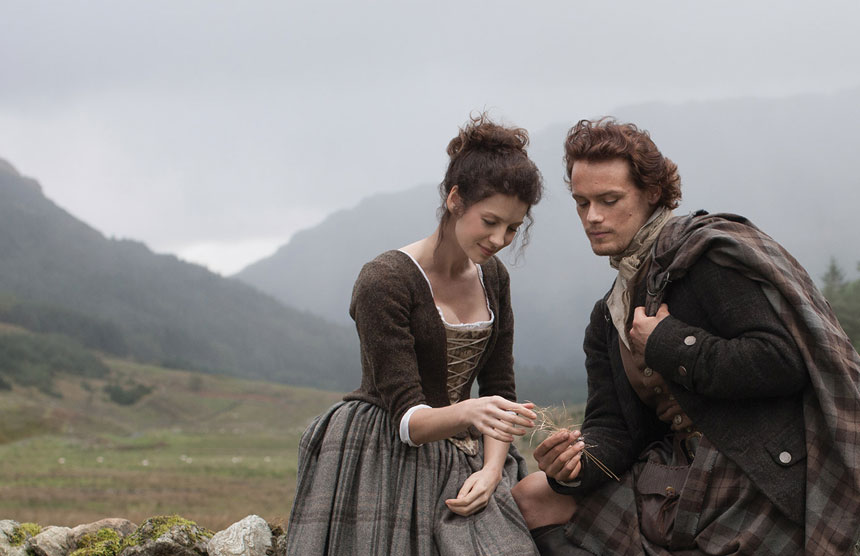 How did you originally come up with the idea for The Outlander?
How did you originally come up with the idea for The Outlander?
I’ve known from the age of eight or so that I was supposed to be a novelist, I just didn’t have any idea how. So finally when I turned 35 I thought, maybe you better get a move-on here. So I thought okay, I’ll write a novel. It doesn’t really matter what it is, I’m not going to show it to anyone, it’s not for publication, I just want to learn how to write a novel. I thought what was the easiest kind of book I could write for practice and I thought probably a historical novel, because I was a research professor. I saw a Doctor Who rerun on television about a doctor who travels through space and time. In this show there was a young Scot from 1745 and this young man, 18 or 19, appeared in his kilt. I found myself still thinking about this the next day. So I said, I’ll start my book in Scotland, 18th century. Knowing nothing about Scotland or the 18th century, having no plot, nothing but vague images conjured up by the notion of a man in a kilt, I went to the library immediately and started looking up Scotland in the 18th century and gathering information and I began writing. I was looking for conflict because that was the only thing I knew about novels, they had to have conflict and I found the Jacobite rising of 1745. Then I thought it would be a good idea if I had a female to create sexual tension. And since we have Scots versus English, if I made her an English woman, we’ll have lots of conflict.
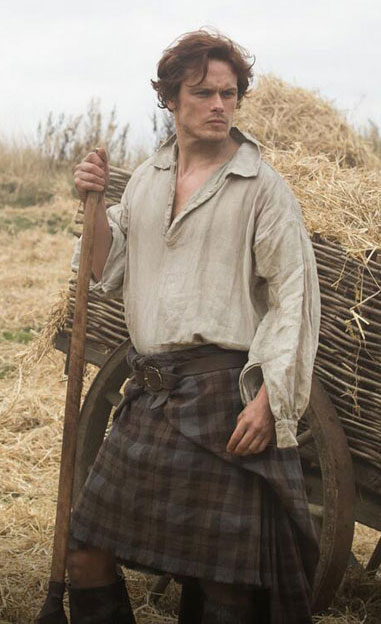 Why did you decide to have Claire come from 1945?
Why did you decide to have Claire come from 1945?
On the third day of writing, I introduced this English woman and I put her in a cottage full of Scotsmen to see what she’d do. One of them stands up and he says, “My name’s Dougal MacKenzie and who might you be?” And without my stopping to think, I just typed, “My name is Claire Elizabeth Beauchamp and who the hell are you?” And I thought, you don’t sound like an 18th century person, so I fought with her for several pages, trying to make her talk like a historical person. She wasn’t having any of that, she just kept making smart-ass modern day remarks and I said all right. Since no one was going to see this, it didn’t matter. Go ahead and be modern, I’ll figure out how you got there later.
I’ve heard writers say they write for their own amusement and if the public likes it, that’s a bonus.
Well, you know, I intended eventually to write a book for publication, but this particular one was just for practice, so I was perfectly free to do absolutely anything. And the world did not end when people finally read it and therefore, it’s given me the courage to write the story the way I think it should be done.
Do you take suggestions from your readers?
No. Do they know how to write a book? No. If they did, they’d be doing it. I write the books the way that they should be and people are going to find different things in them depending on where they, the readers, are in their own lives and their perceptions and background and experience that they bring to a book. No two people in the world ever read the same book no matter what it says on the cover because the experience of reading is so deeply rooted in who the reader is, as well as the material that they’re reading. I’ve been writing a long time and I write the books the best that I can and after that it’s up to each reader how they’re going to respond to it.
What kind of criticism do you get from your fans?
I’ve noticed, because I get a lot of repeat mail, I’ll sometimes get a letter saying, “I loved all your books, but this particular book, I think it drags or it’s too meandering” or something like that and I’ll write back and I’ll say, “Well that’s a perfectly valid observation, but I’ll tell you what, read it again in five years and write me then.” And they do. “Oh my God, you were right.” I go, “What happened?” and you know, suddenly, “This is my favorite book.” Your point of view changed, you got older. Now you’re the same age as the people in that book and you see why they’re doing what they’re doing. People mature and as you mature you see different things, it will become a different book every time you read it.
Do you find your fans read your books more than once?
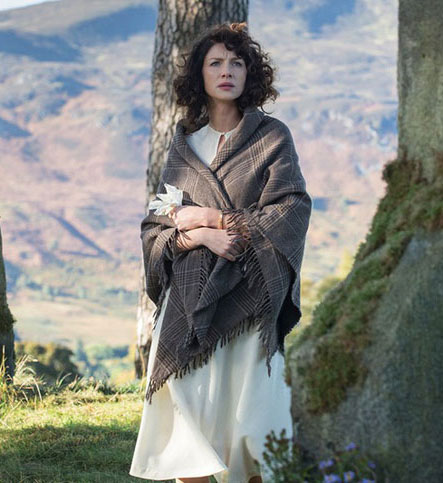 Some people do re-read them. I’m very flattered. They write to me frequently and say, “I re-read the entire series eight times.” There’s a woman who’s read the whole series 33 times. I think, I hope you have a life besides this, but it’s very flattering. The point is that these are very large, complex books. They involve a lot of people with complex lives and subsequently are going to make a different impact on each reader and each reading as well. It’s kind of like looking in a kaleidoscope. It’s the same pieces of glass, but depending on how you turn the tube you’re going to get a completely different pattern.
Some people do re-read them. I’m very flattered. They write to me frequently and say, “I re-read the entire series eight times.” There’s a woman who’s read the whole series 33 times. I think, I hope you have a life besides this, but it’s very flattering. The point is that these are very large, complex books. They involve a lot of people with complex lives and subsequently are going to make a different impact on each reader and each reading as well. It’s kind of like looking in a kaleidoscope. It’s the same pieces of glass, but depending on how you turn the tube you’re going to get a completely different pattern.
Do you ever get tired of the characters, coming up with new adventures for them?
No, they’re real people as far as I’m concerned and like real people they change slightly as they age. I’m never dealing with a static character where I have to fit this guy into an adventure and so forth, because they’re different people with each book. As I explore their situation, their personalities, their adventures just kind of emerge naturally.
These books are so popular, was this the first time someone wanted to make them into a TV series or film?
We’ve had offers ever since I wrote the first one, which was 20-odd years ago, but we’ve gotten film option offers for years and years, we get three or four a month sometimes. That means a production company comes and offers you a fairly modest amount of money for a period of time and what they get is a year, two years, five years during which they have the exclusive rights to try develop the property, as they put it, which basically means take it around to investors and see if they can get anyone to stump up $60 million dollars to make a movie. If they can, then the contract provides for them to pay you a larger amount of money, which is the actual purchase price for the film rights. Now if that happens, that’s it, you’ll never get those rights back and they can do whatever they want with your story, unless you’re J.K. Rowling. That being the case, you want to be really cautious who you do business with because there’s always the off chance that some untrustworthy person will actually come up with $60 million and will make a mockery of your book. This happens more frequently than not and you want to avoid that if you can.
Were there any filmmakers who wanted to change the books?
Well, you want someone that’s actually read your book because a number of filmmakers want a book because it’s a bestseller, they don’t actually care what the story is. I had one very nice producer come out from Hollywood to have lunch with me one day, we were getting along very well and she wanted to make a four-hour miniseries for ABC. She was telling me ABC has their stable of actors and actresses that they prefer to work with, who are, of course, all Americans. She said, “We need a British actor to play Jamie because of the Scottish accent,” but she said, “I don’t see why we can’t change the script so that Claire is an American.” I said, “Oh, you don’t, well in that case you won’t see why I won’t give you an option either.” We had granted only three options since I wrote the book, but none of them came to fruition.
How did you choose to do this TV series?
The fourth option was held by Jim Kohlberg, he’s made several good small movies, critically acclaimed, good storyteller and he had read the book four times before coming to talk to me. At one point in the negotiations he called up to tell me he thought he was channelling Murtagh, so he definitely understood. He spent several years, but it’s just impossible to make a two-hour movie out of that book. It’s very complex, you can’t scope pieces out of it. In the midst of this three or four year option, Ron Moore had finished Battlestar Galactica and he was looking for a new project and so one night he was discussing this with his wife and his production partner, Meryl Davis, and one of the women said, “Oh, have you thought of Outlander? It’s just the kind of story you’d like.” He said, “Well, do one of you have a copy of the book?” And one reached in her bag and whipped one out, so he read it and was very much taken with it. He said, “I can see how to make a TV show out of it.” So he went looking for the rights holder, which was Jim and what ensued next was about two years of negotiations. Once this finally got underway they were free to build the Outlander world and we were off to the races.
How much time have you spent on the set? You played a small role, right?
Yeah, they invited me to come do a cameo, which was a lot of fun, I got to be a TV actor for two days. It was fascinating. A lot of work, but fascinating.
Have you visited the set other than that?
We’ve spent about 10 days or so visiting the set and locations and so forth on that occasion and I’ve been back for a brief visit for a table read on another occasion, but I don’t spend a lot of time there, it being in Scotland. I am a consultant on the show, they send me scripts and script outlines and they show me the daily footage of the show and they invite my comments, which is very kind of them, they’re not obliged to do so, but they do pay attention to what I say, so I tend to be sparing and diplomatic in my comments. It’s a good relationship, we’re pretty much on the same wavelength with regards to the story and the structure and they’re excellent in their adaptation. It’s a very difficult art form to adapt something, but they’ve done a beautiful job with it.
Thank you so much for talking to us, I really enjoyed the first eight episodes, and I’m looking forward to more
Thank you, I do too, I thought they did a great job.
Outlander: Season One is currently playing on Showcase in Canada. New episodes debut on Showcase on April 5, 2015. You can also get Outlander: Season One, Volume One on Blu-ray and DVD. It includes the first eight episodes and has several special features, including the featurettes An Epic Adaptation and The Dresses & Kilts of Outlander. Blu-ray exclusives include Casting Outlander, On Location: Castle Leoch and the Magic of Scotland, Emerging a Scot: Cast goes to Bootcamp, A Walk Through the Sets & Stages with Ronald D. Moore and 21 Deleted Scenes. ~Alexandra Heilbron
Comments & Discussion
Similar Articles
Oscar-nominated Belfast is exceptional – movie review
March 1, 2022 | 4 Comments
Belfast, which has been nominated for seven Academy Awards including Best Picture, is now available on DVD/Blu-ray. Read our review to find out more about it.
People’s Choice Awards 2017 – full winners list!
January 19, 2017 | 4 Comments
Ellen DeGeneres won her record-breaking 20th award at last night’s (Jan. 18) star-studded 2017 People’s Choice Awards. Click here to see all the winners!
Money Monster offers standout performances – Blu-ray review
September 6, 2016 | 2 Comments
Check out our review of the financial thriller Money Monster, out on Blu-ray and DVD today, and featuring an all-star cast including George Clooney, Julia Roberts, and Jack O’Connell.
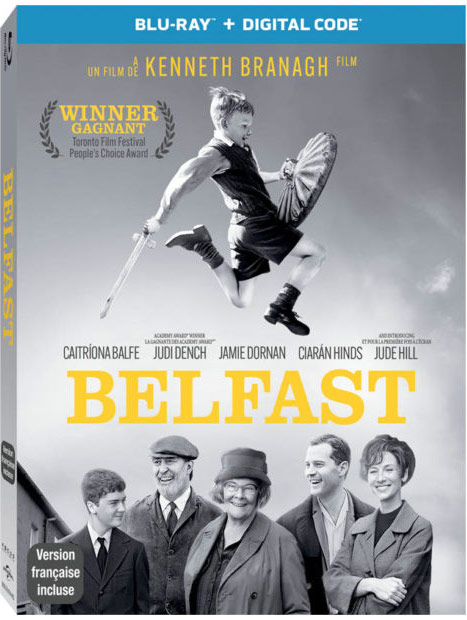
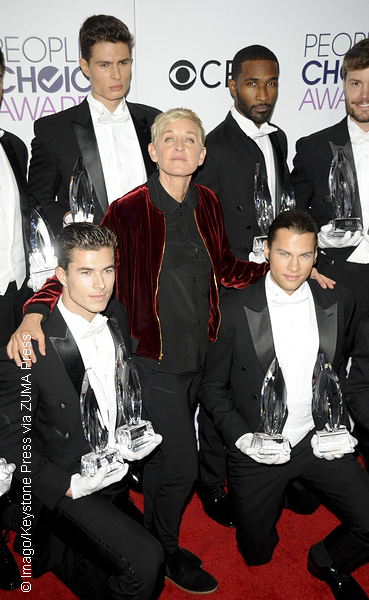
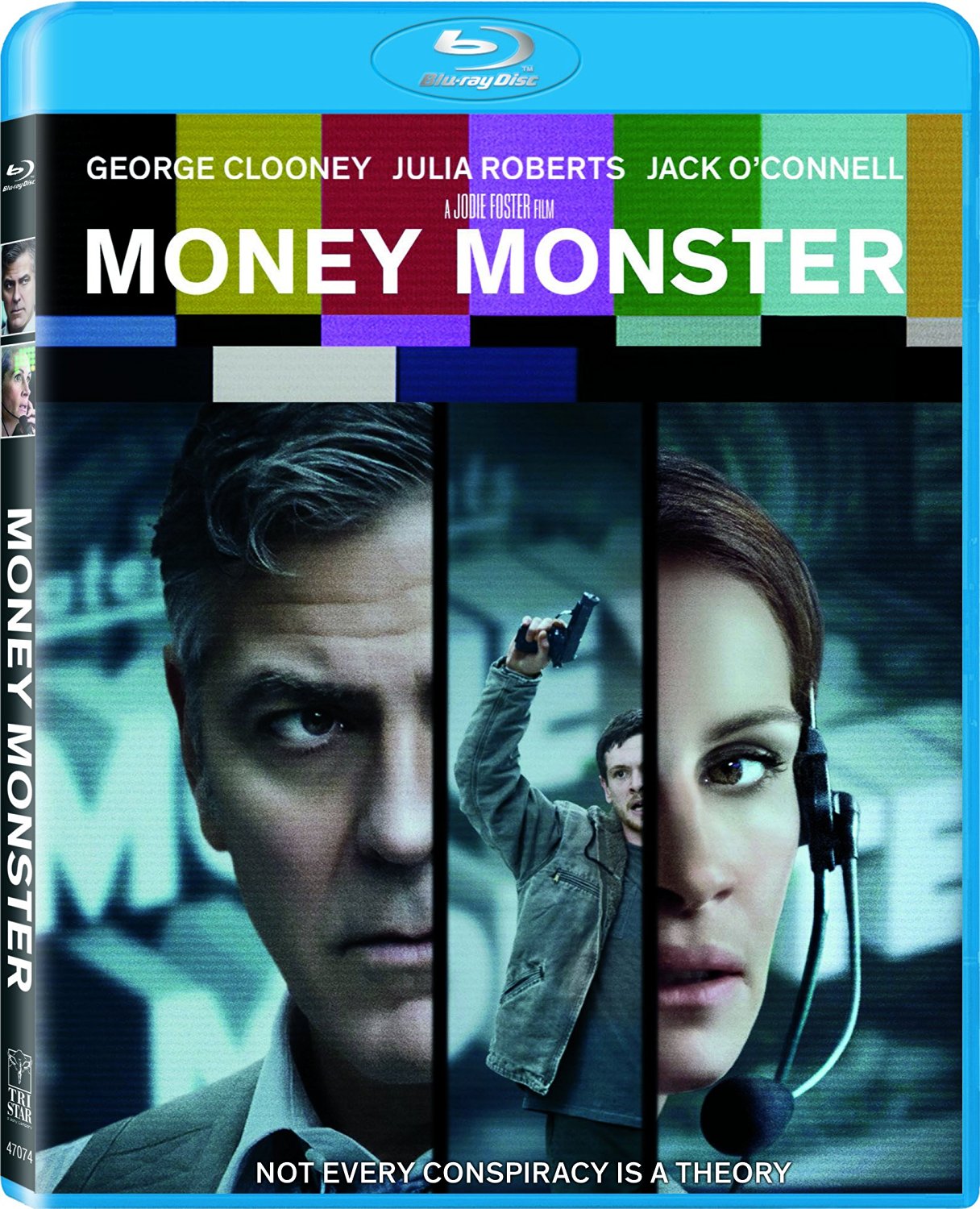
There are no comments yet, why not be the first?